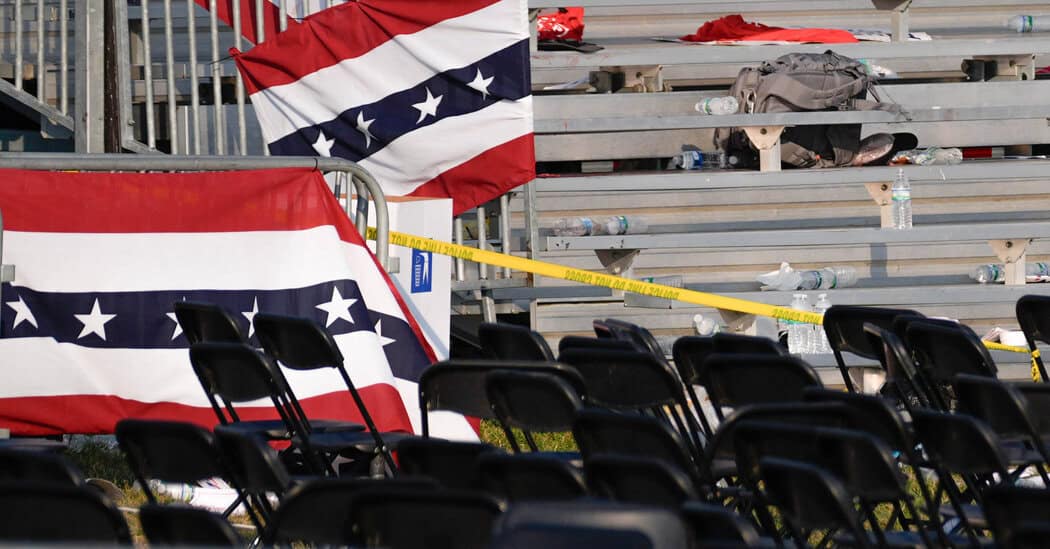The Trump Shooter and the Growing Nihilism of Young Men

Since the vile, civically calamitous attempted assassination of Donald Trump, some of the ex-president’s allies have rushed to blame those who tried to warn of the danger he poses to democracy. “The central premise of the Biden campaign is that President Donald Trump is an authoritarian fascist who must be stopped at all costs,” Senator J.D. Vance of Ohio, Trump’s running mate, wrote on social media. “That rhetoric led directly to President Trump’s attempted assassination.” Empowered by the righteous fury of victimhood, Trump’s movement wants to cast discussion of his autocratic record and vengeful threats as incitement, smothering the debate at the heart of the 2024 election in a cloying fug of sanctimony.
It would be easy to expound on Republican hypocrisy and list all the many, many times Trump has encouraged violence against his opponents. But in this case, the mainstream debate about polarizing political rhetoric isn’t just suffused with bad faith. It also seems to be irrelevant, because the more we learn about the shooter, the less it makes sense to analyze his actions in conventional ideological terms. Though details remain sparse, this appears to be a story less about fanatical partisanship than about the crisis of lonely and disconnected young men being radicalized into pure nihilism.
In the immediate wake of the attack — which killed rally-goer Corey Comperatore as he shielded his family — many understandably assumed that the perpetrator was a leftist like the man who shot Representative Steve Scalise and several others in 2017. But what we’ve learned since then, while not enough to draw firm conclusions, complicates the picture.
The would-be assassin, 20-year-old Thomas Matthew Crooks, is something of a cipher, leaving little trail online. When he was 17, he made a $15 donation to the Progressive Turnout Project, which as Ryan Grim reports, is “one of those spammy PACs that carpet bombs your inbox, delivering emails with splashy colors and wild fonts and using every trick in the book to convince people to give small amounts of money.” But when he was 18, Crooks registered as a Republican, and according to The Philadelphia Inquirer, his classmates remember him as right-leaning. “The majority of the class were on the liberal side, but Tom, no matter what, always stood his ground on the conservative side,” a student in his American history class told The Inquirer.
The reporting that has emerged so far describes him as an outcast, not an activist. A classmate told CBS News that he was bullied relentlessly. Another told The Wall Street Journal, “People would say he was the student who would shoot up high school.” He appears to have had a passion for gun culture; he reportedly wore camouflage or hunting gear to school and wanted to join the rifle team, though he was rejected as a bad shot. He joined a local gun club, and when he was killed on Saturday, he was wearing a T-shirt for Demolition Ranch, a gun-nut YouTube channel.
Some who study terrorism and violent extremism find the shooter’s history of humiliation and obsession with firearms familiar. “We are starting to see some of the key markers we see in individuals that have committed acts of targeted violence,” said Elizabeth Neumann, who served as assistant secretary for counterterrorism and threat prevention in Trump’s Department of Homeland Security. In such people, ideology can be secondary to the desire to wreak havoc and win notoriety.